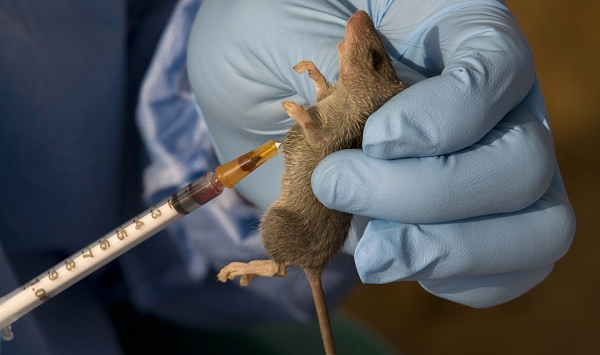One person has died after he was diagnosed with Lassa Fever, a disease that has killed at least 54 people in Nigeria within the past seven weeks.
The man, 26, reportedly died at the Tema General hospital in the Greater Accra Region.
The infection was confirmed by the Noguchi Memorial Institute, Myjoyonline.com has learnt.
Interacting the media Thursday, Director-General of the Ghana Health Service, Dr Anthony Nsiah-Asare confirmed the death but said the Service is working to stop the spread of the disease.
Lassa Fever is transmitted to humans via contact with food or household items contaminated with the urine, saliva faeces, and blood of infected rodents.

About 80% of the people who are infected with Lassa virus have no symptoms. One in five infections results in severe complications, with the virus affecting several organs such as the liver, spleen and kidneys.
It occurs in all age groups, both sexes and persons at the greatest risk are those living in rural areas, according to the World Health Organisation (WHO).
Demonstrating the preparation of the country, Dr Nsiah-Asare said currently all the frontline staff at the hospital that handled the patient before he died, were being screened.
He said further investigations to trace the background and all contacts of the deceased, were being pursued to prevent the spread of the virus.

Dr Anthony Nsiah-Asare
The GHS Director-General has called on the public to be extremely cautious of rodents, recommending good hygiene.
He also urged the public to report any suspected case of the disease.
Symptoms of Lassa fever
The incubation period of Lassa fever ranges from 6–21 days. The onset of the disease, when it is symptomatic, is usually gradual, starting with fever, general weakness, and malaise.
After a few days, headache, sore throat, muscle pain, chest pain, nausea, vomiting, diarrhoea, cough, and abdominal pain may follow. In severe cases, facial swelling, fluid in the lung cavity, bleeding from the mouth, nose, vagina or gastrointestinal tract and low blood pressure may develop.
Protein may be noted in the urine. Shock, seizures, tremor, disorientation, and coma may be seen in the later stages. Deafness occurs in 25% of patients who survive the disease. In half of these cases, hearing returns partially after 1–3 months. Transient hair loss and gait disturbance may occur during recovery.
Death usually occurs within 14 days of onset in fatal cases. The disease is especially severe late in pregnancy, with maternal death and/or fetal loss occurring in more than 80% of cases during the third trimester.
Latest Stories
-
AratheJay announces debut concert ‘Nimo Live’ slated for December 19
14 mins -
Malik Jabir replaces Kwasi Appiah as Kotoko’s Technical Director
16 mins -
COCOBOD CEO assures completion of all projects in Western North region
25 mins -
Bawumia has served Ghana well, let’s give him another chance – Ahiagbah
28 mins -
Special voting ballots won’t be counted until December 7 – EC
34 mins -
The Ark Foundation makes recommendations to government on gender-based violence
34 mins -
Let’s retire Mahama; he’s an example of the biblical wicked and lazy servant – Ahiagbah
39 mins -
WAICA Education Conference 2024 addresses AI and the future of insurance
51 mins -
New Force Movement campaign team reportedly attacked by angry youth in Sowutuom
56 mins -
Harness media power to boost tourism – Deputy Tourism Minister to Ghanaians
1 hour -
ECG denies allegations of fraudulent activities in Nkawkaw Municipality
1 hour -
Election 2024: EC to deny newspapers, online portals access to collation centres
1 hour -
Metro TV incident: Randy Abbey explains what happened
1 hour -
From reactive to proactive: How data-driven insights are redefining risk assessment in insurance – Coronation Insurance
1 hour -
I was advised to do drugs so I could go wild on stage – Safo Newman
1 hour

